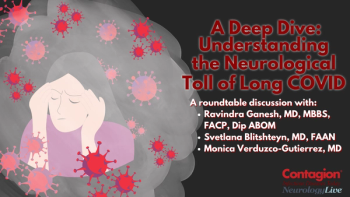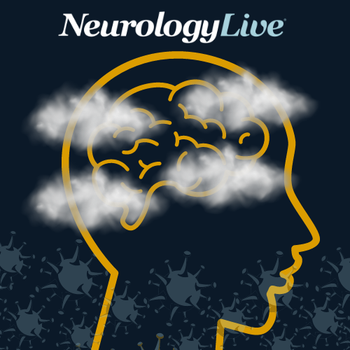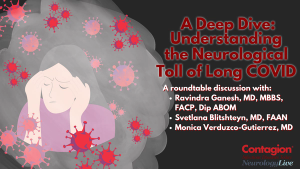
West Nile virus poses increasing neurologic risks in the US, with new strains emerging and significant health implications for vulnerable populations.
Sophia Abene is the Assistant Editor for Contagion. You can email her at [email protected].

West Nile virus poses increasing neurologic risks in the US, with new strains emerging and significant health implications for vulnerable populations.

Recent research investigated how HSV-1 infection affects tau phosphorylation through the cGAS-STING-TBK1 pathway, highlighting potential new therapeutic strategies for Alzheimer disease.

Despite advances in understanding and treating Long COVID, many questions about its mechanisms, susceptibility, and varied recovery patterns remain unresolved, underscoring the need for continued research.

Clinicians discussed the complexities of diagnosing Long COVID, emphasizing the need for improved biomarkers and diagnostic technologies to better serve affected patients.

Without a specific tailored Long COVID therapy, individualized treatment based on patient phenotypes, along with extensive evaluations, is essential for effective symptom management.

In our latest roundtable series, experts highlighted research showing that even mild COVID can result in cognitive impairment including brain fog and IQ decline.

In our latest roundtable series, experts discussed Long COVID prevalence, underreporting, accurate diagnosis, and emphasized that Long COVID serves as an umbrella term.

A new study revealed that mild infections led to subtle memory and attention deficits lasting at least 12 months, providing further evidence of the complex relationship between COVID-19 and cognitive function.

Recent data and conversations with experts highlighted the increasing concern of Long COVID’s impact on the brain in patients who have been previously infected with the virus.

Published: July 10th 2025 | Updated:

Published: October 15th 2024 | Updated:

Published: October 22nd 2024 | Updated: